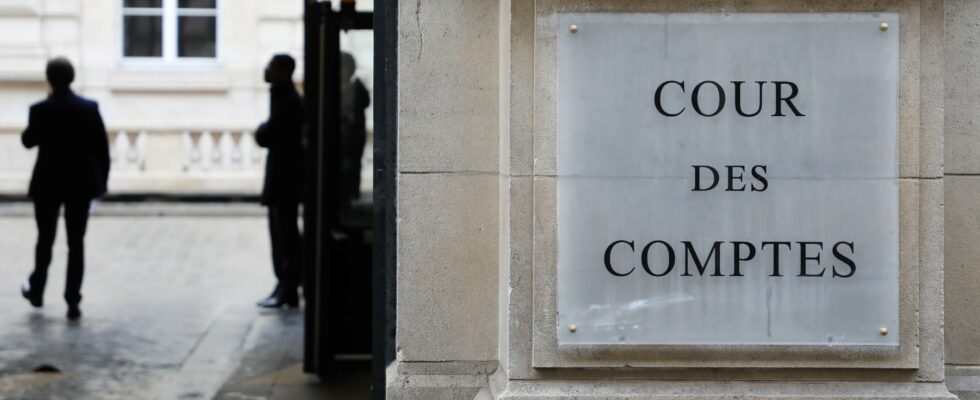It is now a little music that we know well. The Court of Auditors put on Thursday, February 13, France in guard in the face of a “freewheeling” public expenditure: the trajectory of reduction of the public deficit must be respected at risk if not “permanently win” from other European countries. After two slippages of the public deficit, at 5.5 % of GDP in 2023 and approximately 6 % expected in 2024, the government wishes to bring it back to 5.4 % this year and go under the maximum European ceiling of 3 % in 2029, with Two years behind the initial forecasts and well after the other countries in the euro zone. “The skid of the public deficit for two years placed France at the foot of the wall,” insisted the Court of Auditors in a report.
“Despite its weaknesses, it is crucial to respect this trajectory under penalty of seeing France winning its European partners,” she added: “Any additional delay would make the adjustments essential even more important and difficult”. The reduction in the deficit in 2025 “is based exclusively on compulsory samples rather than overall economies, the heart of the expense continuing to progress at a rate close to its pre-crisis trend,” noted the court.
In addition, almost half of the levies of samples provided for in the budget are “temporary”, such as the surcharge on businesses. Already in 2024, the progression of public spending proved problematic, she said.
Expenditure “in freewheel”
The slip of the deficit last year is explained by disappointing recipes, but above all “a drift of the heart of public expenditure”, masked by the progressive extinction of supporters of crisis. This “freewheel” expense has progressed faster than growth. The situation remains very delicate in 2025. In the event of less favorable growth or adjustment than government forecasts, only half of the effort of 110 billion euros required to carry out the sanitation trajectory of public finances could be put implemented.
Consequently, the debt ratio would fly over 125 % of GDP in 2029, and up to almost 130 % in 2031, far from the objectives listed in the budgetary and structural plan in the medium term presented to the European Commission (respectively 115.8 % and 113.5 % of GDP). The debt burden, which already strikes public finances, would double almost 112 billion euros in 2029, becoming the first state budget “far ahead of National Education”.
Despite these forecasts, the first president of the Court of Auditors Pierre Moscovici warned on Wednesday against the temptation to draw inspiration from the “hunt” of civil servants led by billionaire Elon Musk in the United States to reduce the public deficit. “We would be, I believe, unreasonable to inspire us with a recent American model that is starting to implement,” he said at a press conference in Lyon, on the sidelines of the return hearing of the Regional Chamber of Auvergne-Rhône-Alpes accounts.
Appointed by the American president Donald Trump at the head of a “commission with government efficiency” (DOGE), Elon Musk, surrounded by twenty dedicated people, has been upset the federal apparatus in the name of better use of money for a few weeks audiences. In France, several officials on the right and extreme right have also attacked state agencies, including environmental (Ademe, organic agency, etc.) criticized for their cost. The president of the Union of the Right Right, Eric Ciotti, ally of the RN, even called to cut the public expenditure “with the chainsaw”, and advocated the “suppression of 100 agencies”. To which Pierre Moscovici replied: “There are many to reform, a lot to preserve, but probably very little to delete.”
